






What if? That thought comes to mind when I consider what my life could be. What if I didn’t live in a particular city, or attend a certain high school? What if I had chosen a different career path or traveled a different road in life? What if I had never applied action to my dream? What if God didn’t choose me to be paired with His vision?
I will be the first to admit that my life has been anything but simple. For the most part, it has been full of winding roads and quite noisy at times. The love and encouragement of my mother, grandmother, and others surely help to soften me; I surely miss my grandma. Yet, the storms and shortcomings I’ve endured have done their job and toughened me a little.
I have learned that my peace lies in the space between the good times and bad times, and for me to enjoy and experience peace, I must work for it. I have also learned that life will get tough, and when we get knocked down, God doesn’t expect us to stay there. There are lessons in all experiences, and getting up and trying to get it right again is part of God’s lesson.
There was a point in my life when I didn’t know if I was coming or going. With every move I made, it was the wrong one. There were also times when I would move or react to whatever thought came into my mind. Again, that turned out to be the wrong thing to do. My point is everything I had done, I did it without seeking guidance from God beforehand. I was driving my own ship, yet I was going nowhere and fast.
While I made a mess of my life, God was there, like He always has been. He allowed me to make those bad decisions and provided grace to ensure I would survive them. During the times when I continued to make the same mistakes over and over again, God continued to cover me because there was a lesson that I needed to learn.
Despite everything I have experienced thus far, God has been right there with me. When it appears things aren’t moving fast enough, I know that God is governing the speed at which things are happening. When we get in God’s way, we block Him from blessing us. Get out of God’s way and allow God to drive. You might just learn that life is a lot easier from the passenger seat.
L. Watson Publisher Dorjae’ McClammey Writer Terry L. Watson Writer
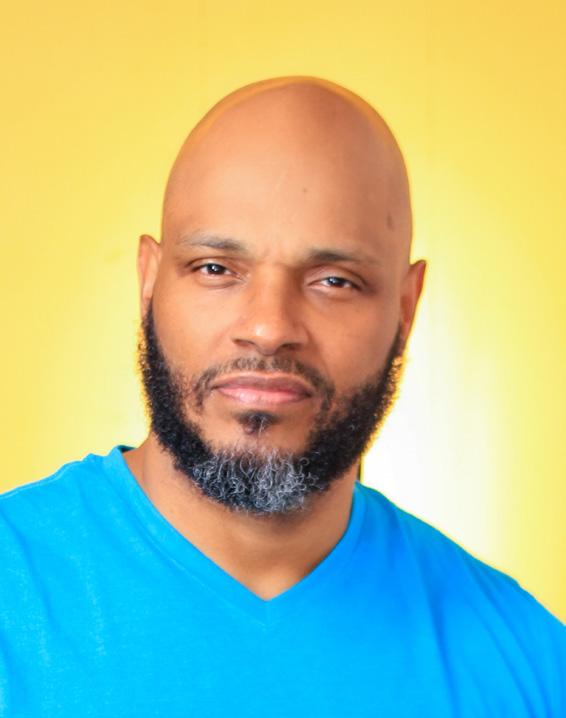

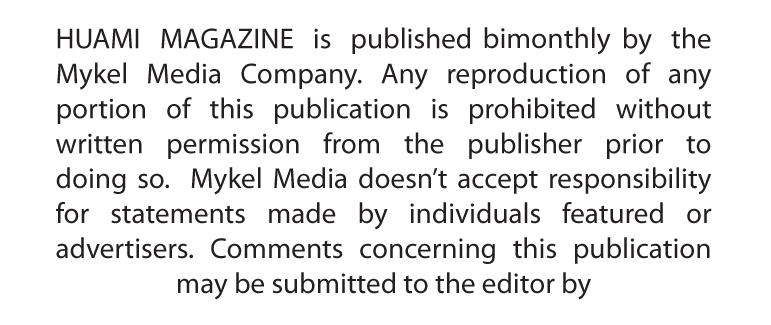

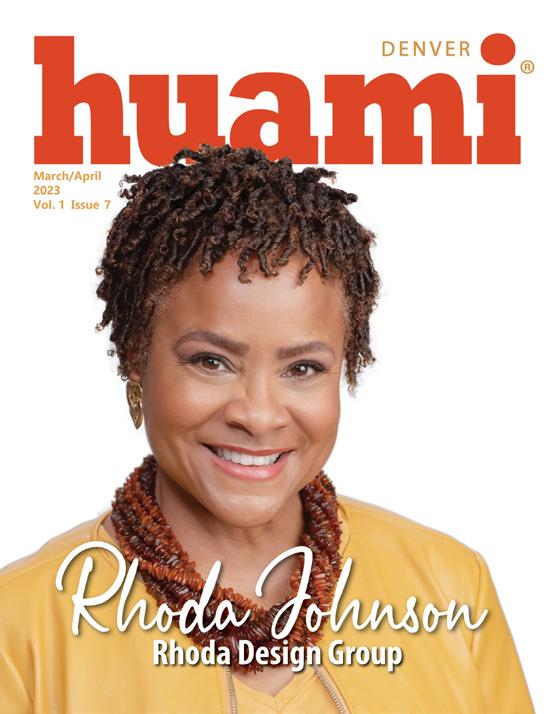
Montgomery Writer Marrissa Dick Writer
Maria Photographer
She is an expert event planner and designer, now her focus has pivoted to encouraging mothers. Learn more about her new book and devotional. Richmond, VA
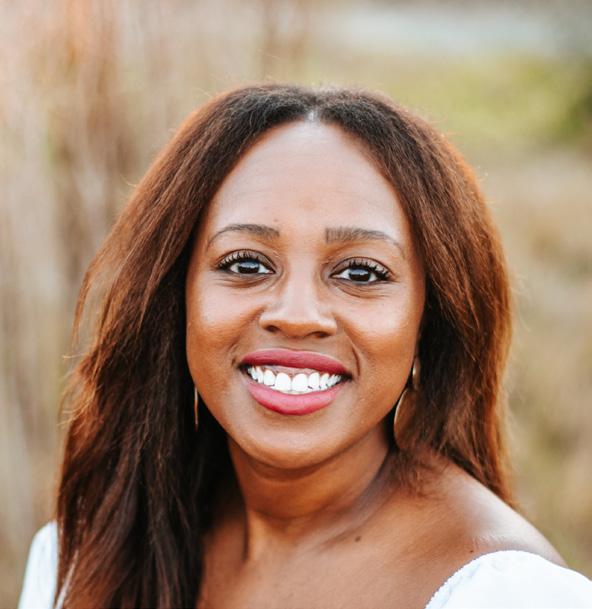
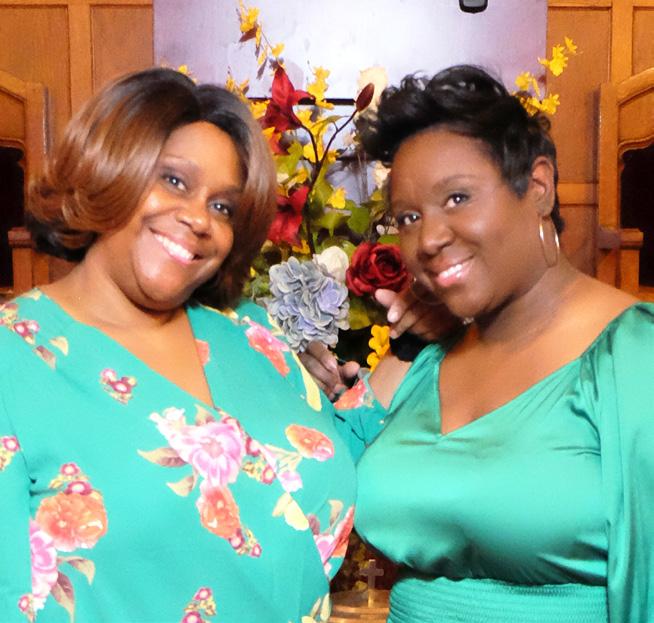
He is the first African American Brigadier General in the North Carolina National Guard. Learn more about his story. Greensboro, NC
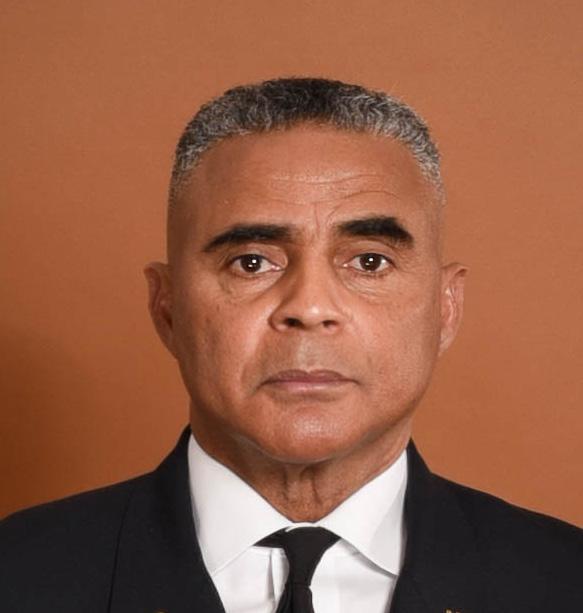
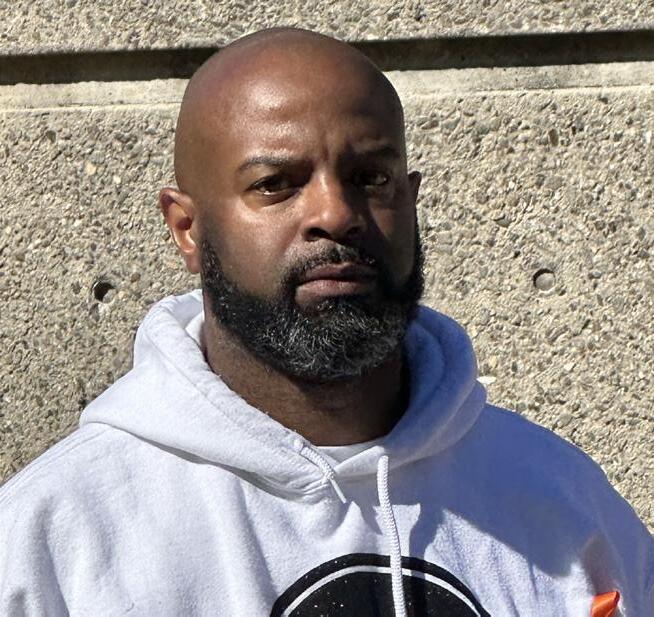
She is the face and founder of Nana K’s All Purpose Seasonings. Learn more about her path in business. Pheonix, AZ
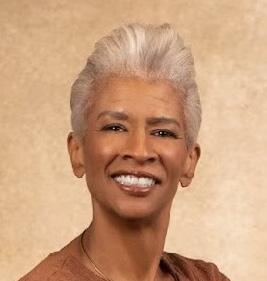

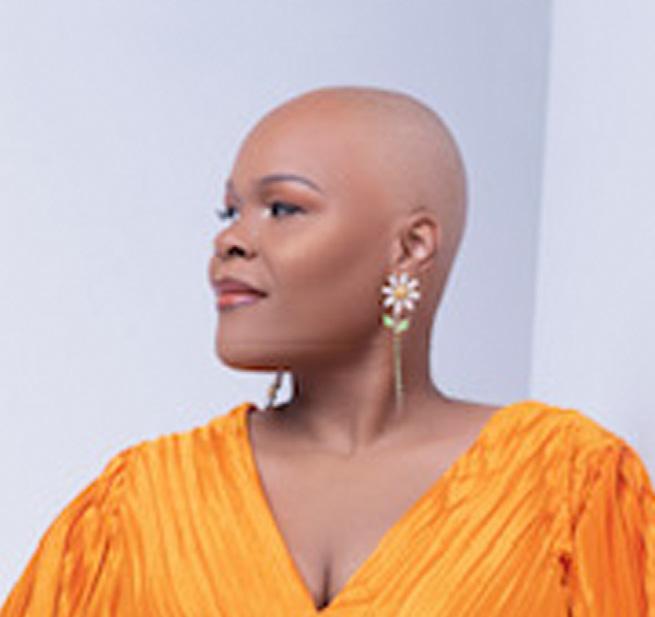


Rhoda Johnson has been an art prodigy since the young age of five. “At my souls essence, I am creative. It just lights me up to be able to work with color in various mediums in my business and in my hobbies,” she says.
Rhoda’s middle brother, Dr. Robert Johnson was a brilliant Neuroscientist. His influence inspires her to share neuroscience research and it’s impact on fashion psychology in her Image Coaching practice. Rhoda is a mother, grandmother and is passionate about supporting her community.
Rhoda is a native of Indianapolis, IN. Now residing in Denver, CO, she is one of six children raised by a single mother. Rhoda attended high school in Colorado and later attended college in Southern California, staying in the Golden State for 11 years.
Rhoda is the Creative Visionary and Founder of Rhoda Design Group, an Image Consulting Boutique that offers wellness based products and services to elevate the leadership presence of women. The products include botanical skincare, gemstone jewelry designs, makeup kits, and personal branding services. Rhoda has worked in the beauty and fashion industries for over 40 years. Her busy career clients inspired her to develop and trademark makeup wardrobe kits to accommodate their professional and social settings.
How did Rhoda begin? She says she was inspired as a teen by elegant African American women at her church to refine her image. When she could not find makeup to accommodate her skin tone, she dreamed of creating a makeup line for women of all cultures and studying the fashion that aligns with it. “There was not a clear path for me so I made my own.”
“Everything that I offered came out of pain. I have come to realize that there is a purpose in my pain. I had a health crisis nine years ago,and doctors told me I couldn’t use my arms again. That is when I went to work and designed my make-up kits.”

Rhoda attended Brooks College, obtained her fashion degree, studied under a Hollywood Makeup Artist, and received her Image Consulting License from John Robert Powers before starting her company. Rhoda worked in Hollywood with celebrities like Stevie Wonder, appearing as an extra on the Jeffersons, Facts of Life, and Different strokes while freelancing as a makeup artist in Beverly Hills and Los Angeles for 11 years.
Rhoda would later move back to Colorado to provide her daughter with better opportunities to grow and learn. She got married and got divorced, and she says that the pain of the divorce pushed her to grow her business. “Everything that I offered came out of pain. I have come to realize that there is a purpose in my pain. I had a health crisis nine years ago, and doctors told me I couldn’t use my arms again. That is when I went to work and designed my make-up kits. I wanted to use my hands and my expertise. I am now pouring all of the wellness practices I experienced into my business,” she says.
Rhoda’s passion for designing jewelry and teaching make-up masterclasses is unparalleled. Alongside this, she takes pleasure in teaching corporations how to elevate their images, a skill that she mastered with the help of her grandmother, Pearl. Her grandmother’s impeccable dressing and unwavering faith, combined with her selfless acts of service, have inspired Rhoda to be who she is today.
The path to success has not been free of obstacles, particularly regarding funding. However, Rhoda’s determination and firm resolve have enabled her to fund her business with her own hard-earned finances. Rhoda also emphasizes the importance of creating cohesiveness within her community of black business owners. She firmly believes that mutual support and collaboration can drive businesses forward.

Rhoda’s advice to budding entrepreneurs is candid and sincere. She helps them understand that hard work is the bedrock of success. “As a business owner, you must be willing to do whatever it takes, which often means wearing many hats. It may feel like quitting or giving up, but focusing on your “why” perpetuates the journey through the tough times,” she shares.
Looking toward the future, Rhoda is looking forward to helping others. This includes creating accessible webinars, refreshing her brand, and making her products more widely available. Rhoda also wants to explore the world further, seeking new cultural perspectives to incorporate into her business. With her drive and love for serving, there is little doubt she will accomplish all of her goals.
Please visit Rhoda’s website today to learn more about her and her brand.
www.rhodadesigngroup.com h

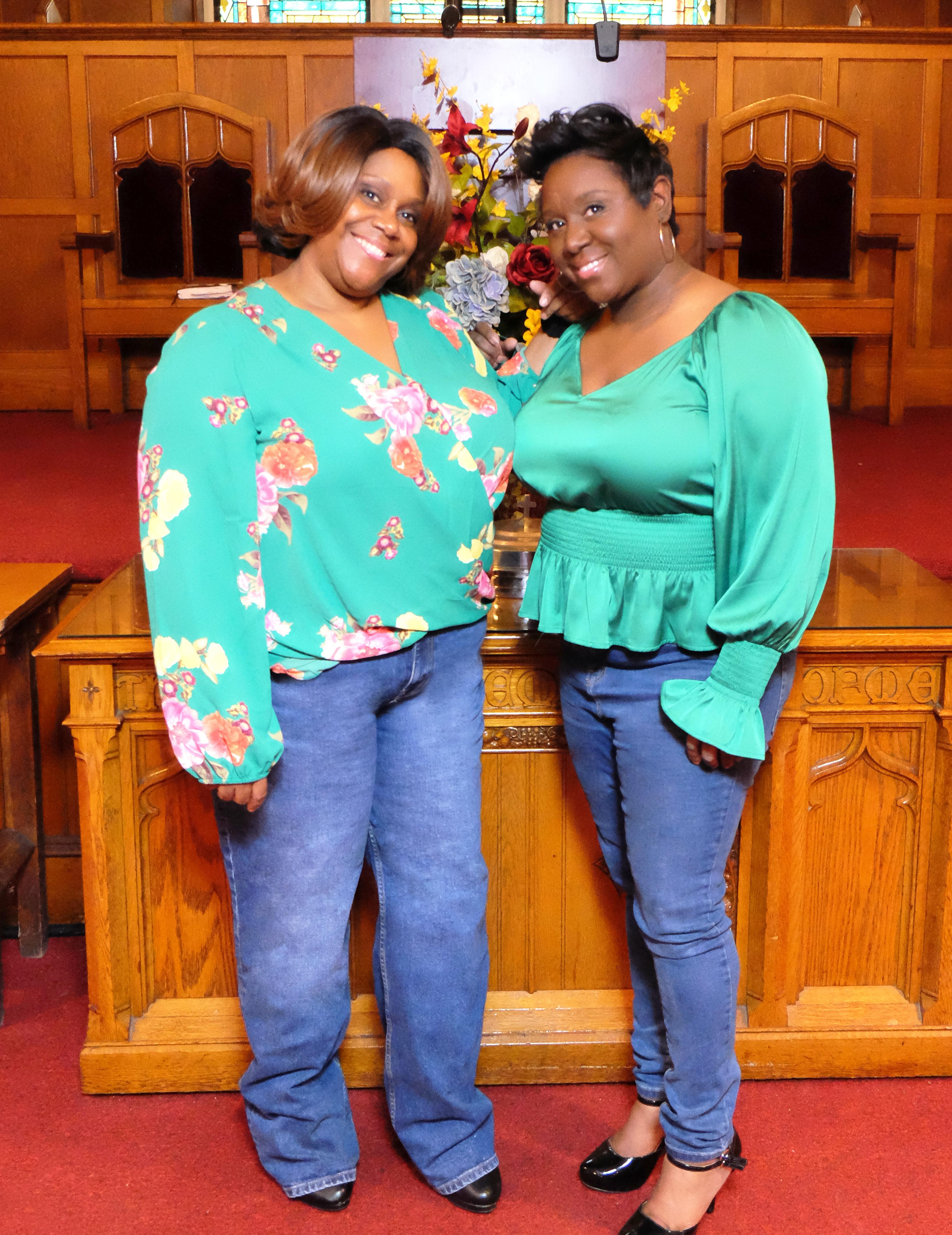
 By Monica Montgomery
By Monica Montgomery
Sisters Kimberly Gegner and Alicia Williams-Clark are setting the standard in private Christian education in the Abington, Pennsylvania, area. New Hope Christian Academy is a private, faith-based school that services kindergarten through twelfth-grade students. New Hope offers small classroom sizes, which maximize personal attention--enabling students to reach their full potential.
“Our courses are designed to promote excellence. We are committed to offering the best and most advanced educational opportunities available. With our individualized, innovative curriculum, students progress at their own pace,” Alicia, one of the co-founders of NHCA, explained.
One primary truth proven over time is that great things are birthed out of need and adversity. Kimberly, a mother of five, wasn’t getting the support she needed for her oldest daughter Mary. “Mary came to our family through foster care and adoption. She was diagnosed with ADHD and ODD (oppositional defiance disorder). Mary struggled in school. By the time my daughter was in eighth grade, she could no longer function in a traditional classroom setting. She acted out in every way possible, her grades were very low, and it got to the point that homeschooling was my only option. By this time, I had three children—Mary, her older brother, and at that time, a new baby. I knew I had to do something, but I couldn’t and didn’t want to do it alone. So, I called Alicia and told her what was happening, and she was immediately like, let’s do it together,” Kimberly shares. The sisters started a homeschool co-op based out of their father’s church.
During that time, Kimberly was in graduate school at Eastern University, working on a master’s in Urban Economics development. “While working on my master’s degree, I started to conceive of a Christian school that catered to non-traditional students who looked like us and was affordable on every budget. The school would have a holistic approach, focusing on mind, body, and spirit,” Kimberly explained. “This was different from any faith-based schools in Philly at the time.”
Understanding right away that their family wasn’t the only ones who needed the smaller non-traditional approach to education, applying her Economic development background, Kimberly and Alicia built a model of a Christian school that was funded by businesses instead of tuition. With their model in place, the sisters jumped in heart first. Now eighteen years later, the school is thriving and growing simply through word of mouth and having a reputation for excellence.
When the school started, Alicia didn’t yet have her bachelor’s degree, but both sisters received Ed.S. in their specified areas. Kimberly’s is in Educational Leadership, and Alicia’s is in Mathematics Education. Kimberly admits that the idea to open a Christian school was seeded with the vision of the church it was birthed from.
“Vision for the school is aligned with that of the church, which is very social justice oriented. We wanted to create a learning environment that would produce social capital, meaning active and productive community members. These students would help to build their communities from the inside out. Our curriculum isn’t just academics but also focuses heavily on character building. We wanted to make sure that the alumni of our school go on to improve and elevate society as a whole due to having had the New Hope Christian Academy educational experience,” Kimberly explained.
“New Hope Christian Academy is committed to educating each student’s mind, body, and spirit. We believe that the holistic education of children, with a strong emphasis on entrepreneurship, will build strong people, families, and communities, ultimately changing the world,” Alicia shares. “From the start of the co-op, this has been our vision.”
When the homeschool co-op started in September 2004, it had five students. The following year they had seventeen students. “Initially, it was Kim’s oldest son and daughter and our three younger siblings,” Alicia explains. “We playfully called them the Fab Five because they were the first five students enrolled. But once people saw how it worked for them, word got around. Church members and other people we were affiliated with approached us about allowing their children to join, and things just grew from there.”
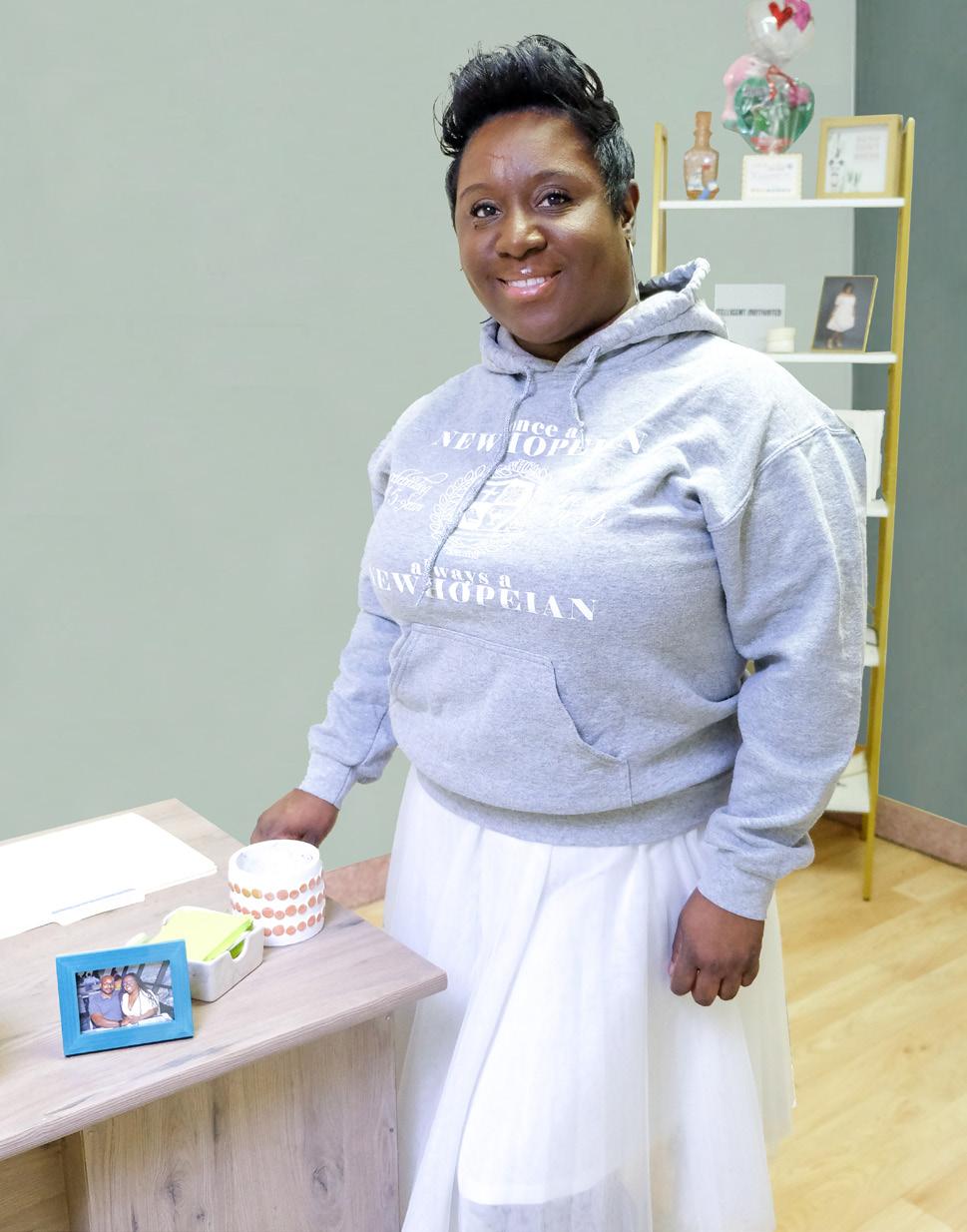

The school does very little advertising. Most of their students are word-of-mouth referrals. Part of the reason is that the NHCA experience isn’t for everyone. “We focus on students who don’t do well in the traditional school setting. There is an excessive amount of young black males who don’t excel in the traditional classroom. These students function much better in smaller focused groups where they can receive more individual instruction and move at a comfortable pace,” Kimberly explains.
Although NHCA is a private school, it is certified through the state and works in conjunction with the title 1 school district their students live in. Title 1 districts are known to have students who experience higher rates of economic hardships and childhood trauma.
“This is also why tuition is so low. We were taught that lack of funding should never keep you from making something happen. And in some cases, students may receive sponsorship. That is how we run our school,” Alicia explains.
In the eighteen years the school has been in operation, it has seen rough times, but that didn’t stop Alicia and Kimberly. “When we started the school, we only had five students, so it was no problem to house the school at the church. But when the school expanded, we quickly outgrew the small space the church provided,” Alicia said. “Our biggest obstacle has always been finding a building to house the school.”
At times the sisters had to take on other jobs to pay for facilities so they could hold classes. “Things were so bad at one point that we went without salaries. Thankfully we both have very loving and supportive husbands who believe in what we are doing,” Alicia shared. “We had to use our gifts and talents to keep the doors open,” Kimberly said jokingly. “I sold baked goods, and Alicia used her graphic designing degree to earn extra money for the school.”
At one point, NHCA had to fold into another local Christian school because they had no place to hold classes. “That was really hard, but we didn’t give up,” Kimberly explained. “I went with our students and taught at the new school, while Alicia went and worked a regular nine to five so we could regain our footing.”
One year later, the school reopened, and all of the original NHCA students returned. “The school administrator admitted that she tried to get some of the students to stay, but they weren’t having it,” she said proudly. “They all came back.”
Over the years, the enrollment for NHCA has fluctuated between thirty and sixty students. Currently, they have fifty students enrolled. The school employs seven full-time teachers, three part-time staff members, and one SEL counselor. Kimberly and Alicia also teach. Alicia works with Elementary students, and Kimberly works with Middle and High School students.
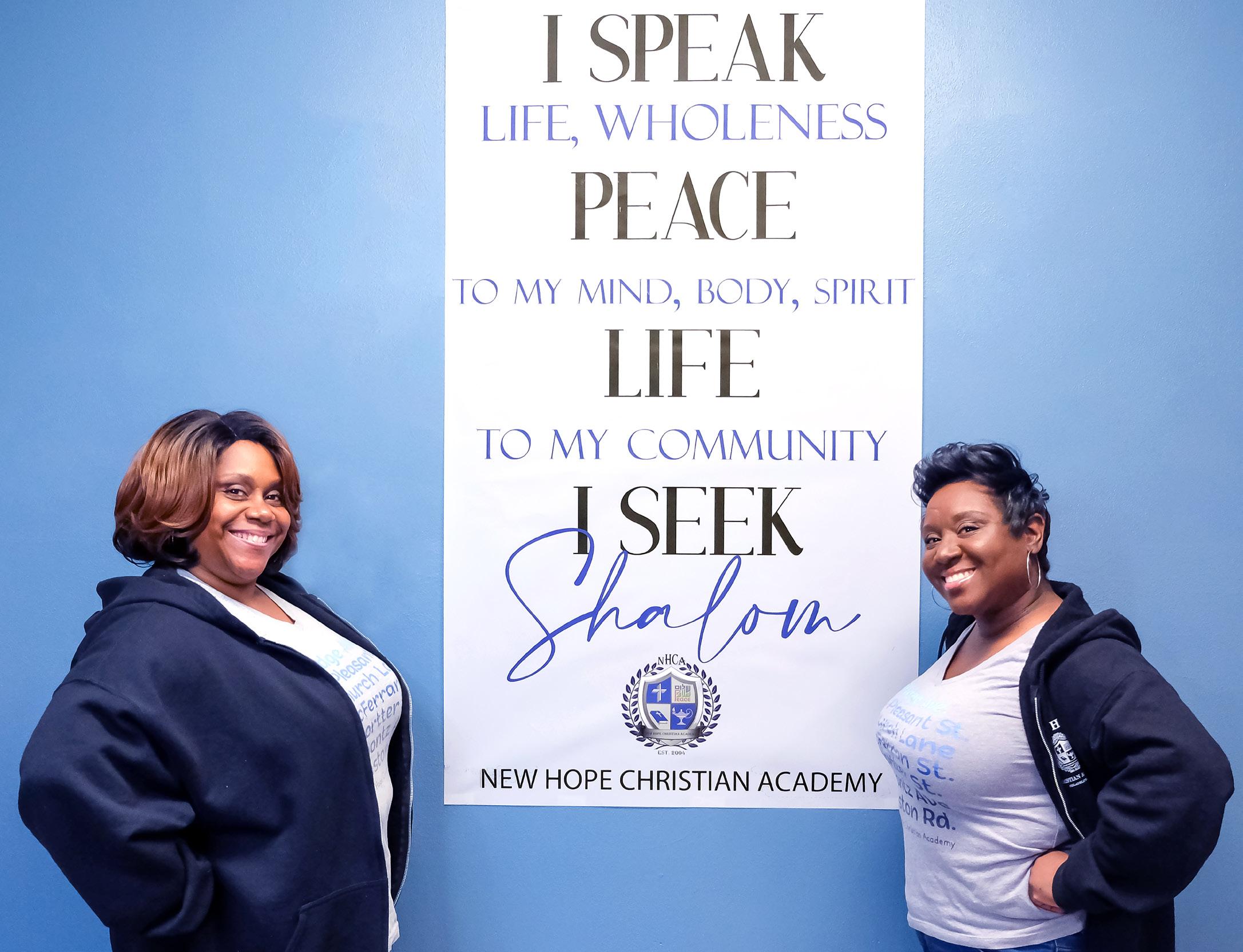
The most significant achievement Alicia and Kimberly like to recognize is when they can celebrate their alumni. “We host a New Year’s Breakfast and an end-of-the-year festival for our alumni every year,” Kimberly explained. “We have students who now have their bachelor’s and Master’s degrees who are coming back and working with us. That’s the social capital I was talking about,” she said proudly.
To hold true to its vision statement, NHCA will keep its enrollment at a maximum of sixty students. But they have been asked about expanding. “We have had great success with our students and the model that we use. I wouldn’t want to increase the class size. But we may open a second location using the same model,” Kimberly explained. “We have been contacted by several organizations asking us if we would be interested in setting up schools in areas like ours around the country. We’ve even been asked if we were going to write about what we’ve achieved. I can see us growing to around ninety to a hundred students over two campuses. I think that would be ideal for what we are attempting to maintain. Our current goal is to grow our staff. I used to love being in the classroom, but as I get older and the students seem to get younger, I see myself taking on more of an administrative role. I would be focusing on mentoring new teachers and staff development. It takes dedication, patience, and a calling to teach our children. I see myself helping to cultivate that in new teachers. I want to instill in them the New Hope Way.” h
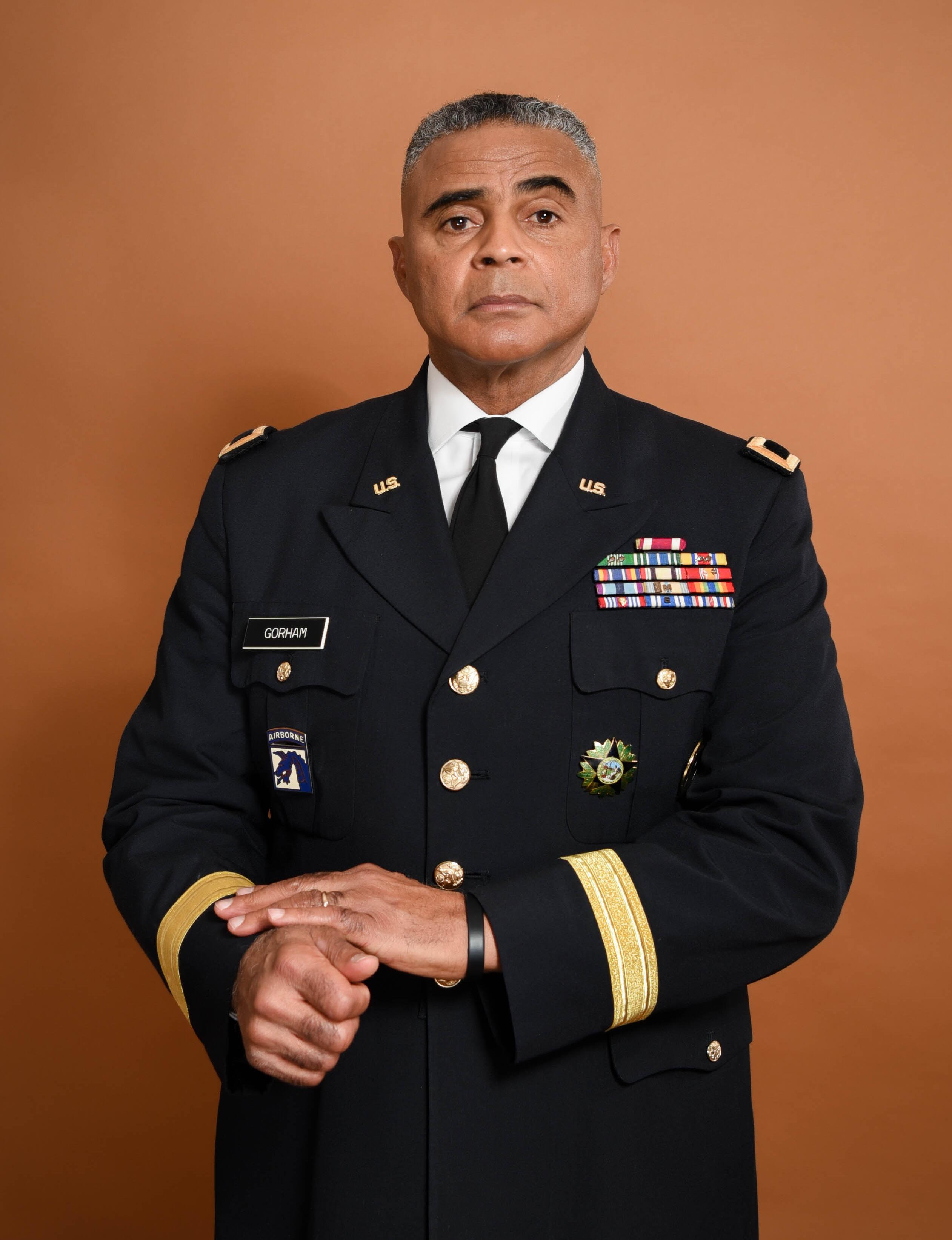
The Good Book tells us in Proverbs 29:18, “Where there is no vision, the people perish: but he that keepeth the law, happy is he.” It also says in Zachariah 4:9, “Do not despise these small beginnings, for the LORD rejoices to see the work begin.” These two verses have motivated James R. Gorham throughout his life. He never forgot the vision and continues to appreciate the humble beginnings of his life.
Meet Brigadier General James Roy Gorham, known by most as J. R. and affectionately known as that curly-haired little boy from the tobacco fields of Falkland, NC. Read on and learn how the sharecropper’s son rose from a boy priming tobacco in his parent’s tobacco field to becoming the first African American Brigadier General in the North Carolina National Guard. J. R. shares, “I was born to Roy and Madie Gorham in 1956. I have five older sisters, so I had six mammas. Since I was the first boy born after five girls, I was the apple of their eyes. I was fortunate to have been born into a loving family, even though we lived in a four-bedroom shack. That shack had holes in the floors and in the walls, we had plastic around our windows in the winter, and we even had an outhouse. That shack had no running water, so I had to draw water from a well. On the weekends, I had to draw 80 buckets of water just so mama could wash the clothes because we had one of those washing machines with rollers so it took a lot of water to do the laundry. I didn’t have any expectations to do anything in particular with my life back then because we were actually po’ with one “o” and we could not afford the “r” that’s just how poor we were. Looking back on it, we were only poor in resources, but in the things that really mattered in life we had an abundance.”
Growing up in an authoritative household can seem daunting to many teenagers, and J. R. was no different. So when the day came to forgo working in his father’s tobacco field and living under his strict rules, J. R. took it by joining the United States Army.
“I didn’t join the army out of any patriotic duty. I joined to get out of that tobacco field and to get from under my daddy’s thumb. I just wanted to live my life. My best friend until this very day, Rick Streeter, and I got our money together and sent in our initial deposit so we could attend NC A&T State University in 1974, but that didn’t happen. Instead of us going to school, we played hooky. After we messed around all day, we went down to the recruiting office to listen to that spill so we could get a note to return to school. When I tell you that the recruiting officer painted a wonderful picture of us seeing the world, we bought it; hook, line and sinker, and we signed up that day!”
Through our lived experience, most people understand everything that shines ain’t gold. J. R. discovered making his own decisions came at a price. He shares, “When I joined the US Army in 1974, I was 18 years old and bringing home $312 a month. That was the first time in my life I had some real soft money in my hand. I didn’t know what to do with all that freedom. When I was transferred to Fort Hood, TX, I got with the wrong crowd and started going out every night, getting drunk, and I was making a whole lot of bad decisions. My defining moment came on Christmas Eve in 1976 when I was at my platoon sergeant’s house for a little party. At that time, The Walton’s came on tv, and they reminded me of my family. A feeling came over me that I cannot describe to you, and all of a sudden, I didn’t want the beer that was being offered to me. I left his place and while I was driving to the hole in-the-wall apartment I lived in, I looked over onto the shoulder of the road and saw that a loaf of bread has fallen out of somebody’s car. Now I want you to understand I didn’t have any bread in my house. All I had was seventy-five cents in my pocket and a fourth tank of gas in my car because I had drunk up my money. So, I pull my car off on the shoulder of the road, get out and walk towards the bread. When I stooped down to pick it up, a story that I learned in St. John’s Baptist Church in Falkner, NC, came to my remembrance, and I said to myself oh my God, I’m that prodigal son! My mamma and daddy didn’t raise me this way.”

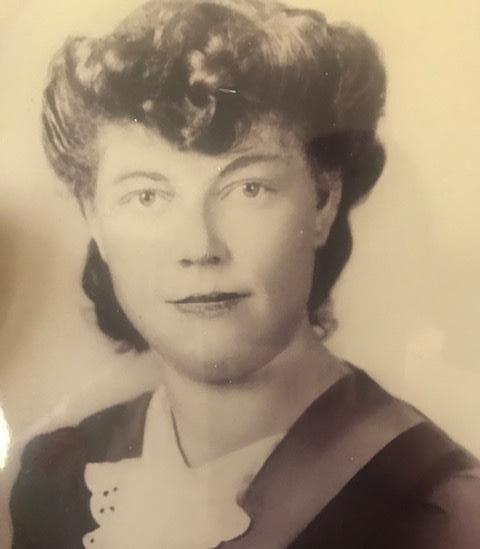
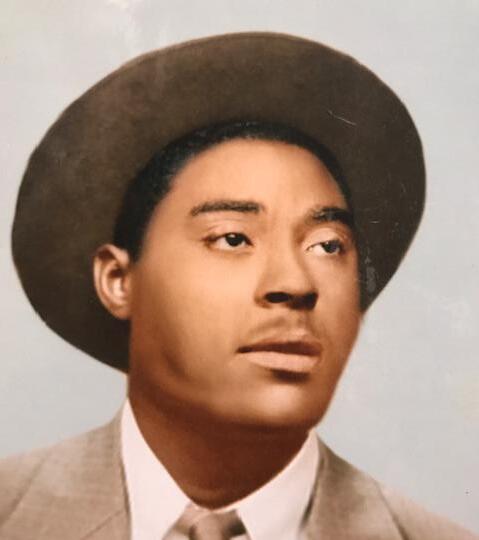
When J. R. got back to his place, he called home for the first time in about eight months. As soon as my mother hears his voice she says, ‘Bruh come home for Christmas.’ J. R. told her that he couldn’t because he didn’t have any money. He says, “She tells me that she and daddy would wire me the money but I had enough sense to know that I cannot take that proposition from my mamma. I was 20 years old and I manned up and told my mother that I had gotten myself into this situation and it was up to me to get myself out. I knew if I had taken that money from my parents, I would be expecting them to always rescue me. Instead, I asked her to pray for me. She understood, but then she put my five sisters on the phone, and after hearing them cry, I really felt like a loser with a capital L.”
By the time J. R. got off the phone, he says the thought of checking out permanently crossed his mind. However, something inside of him, what is referred to in the Army as “Intestinal fortitude,” kicked in. “Spiritually, I know it was the Holy Spirit and He would not allow me to check out,” he says. “After I hung up, I went across the railroad tracks into a cow pasture, and I walked, and I walked. I decided in that cow pasture that this would be as low as I was ever going to go.”
Armed with a desire in his heart and a gleam in his eye J. R. went down to the local community college and enrolled in an English and Math course. Afterward, he summoned the courage to confront his Sergeant to atone for his misdeeds. When his Sergeant saw him standing outside of his office door, he looked at J. R. as though he was the last person he ever wanted to see. “He asked me what I wanted and I told him I had a proposition for him. I told him I would pull extra duty every weekend for the rest of my time there if he would take my name off the weekly extra duty roster because I had enrolled in school and needed to attend class. After he finished looking at me he said, ‘You got a deal, Gorham.’ He shook my hand and took my name off the extra duty roster. To this day he doesn’t know that random acts of kindness helped me turn my whole life around. The Good Book says, one plants another waters, but God gives the increase. So, all he was doing was watering what had already been planted in my life by my parents,” J. R. says.
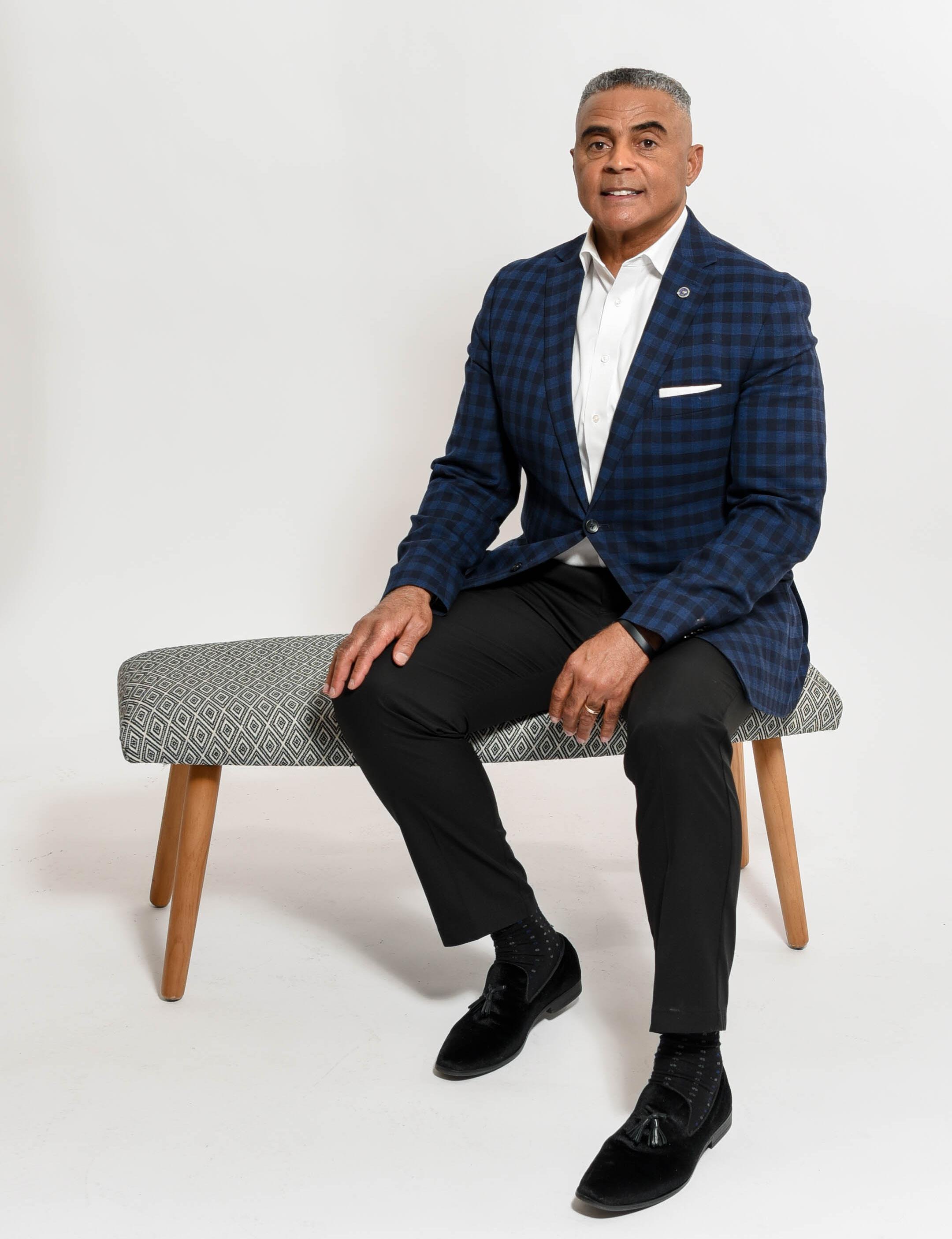

Soon life got better for J.R. He started thinking about one of the many sayings that sharecropper daddy of his would say while they were riding in his old raggedy and smoky Silverado pickup truck. “He used to say, ‘Boy if you’re willing to do what other people will not do, you can go where other people cannot go.’”
J.R. didn’t realize how true that statement was until one day, in the Spring of his senior year the company commander called about 200 soldiers into formation. He asked volunteers to pick up nails in the motor pool because they were causing flat tires. He said he would give anybody who brought him two handfuls of nails a three-day pass. Now 200 soldiers heard that charge, but J.R. was the only person who brought him two handfuls of nails. Instead of him giving J. R. a three-day pass, he gave me a four-day pass. “On my way out, I rolled down my car window and hollered out who’s laughing now! Ya’ll gotta stay here and work while I get the rest of the week off. Like my daddy said, ‘If you’re willing to do what other people will not do you can go where other people cannot go.”
After J. R. left the Army he went home and attended East Carolina University. While there, he joined the North Carolina National Guard and attended Officer Candidate School in Fort Bragg, N.C. where he graduated first in his class. He was grateful that his father, who served in the Army during WWII, had the opportunity to see him graduate. While J. R. was taking pictures with generals, he remembers his father imparting yet another golden nugget in his life. “My daddy said, ‘Boy you are becoming your company. Whoever you’re hanging around with is who you will become.’ So as a Second Lieutenant, I started hanging around with the First Lieutenants until I became one. Then I started hanging around captains, majors, lieutenant colonels, and colonels. Eventually, I started hanging around generals and now I’m the first African American Brigadier General in the NC National Guard,” he says.
J. R. shares that his father was a firm and wise man. “I am grateful for the chastisement, ethics, and morals he instilled in me, past the bone into my marrow. I wouldn’t be where I am today if I wasn’t that sharecropper’s son. He groomed me to be a leader the oldfashioned way.”
J. R.’s progress through the military was not always as sweet as this last memory. He was often looked over for promotions he was qualified to receive, which caused him to consider retiring early. That would only be a thought and he recalls his father saying, “Boy when you get to the end of your rope, you tie a knot, and you hang on but you do not quit.”
According to J. R., “If I had let my emotions get the better of me I would have quit and retired as a major. Instead, I went to Iraq as a lieutenant colonel and was promoted to full colonel while I was in a war zone. If I had quit because of my emotions, I would have never received that promotion from on high. Not only did that happen but shortly after I returned I received a call from a two-star general inviting me to lunch. When I got there, he informed me that he had submitted my package to the Department of the Army to promote me to Brigadier General. I broke down right there at the table. I was crying from the inner part of my soul for two reasons. First, I’m going to be the first African American Brigadier General in the NC National Guard. I’m crying because in this country when you’re a man or woman of color, you become the litmus test for everyone coming behind you. I’m feeling the gravity of that responsibility in my tears.” J. R. says he was also crying because that moment made up for all the times I had been overlooked.” For the record readers, generals don’t cry. Their eyes sweat, so we can be assured that J. R.’s eyes were really sweating that day.
Today, Brigadier General Gorham is a community leader, motivational speaker, and the author of Sharecroppers Wisdom: Growing Todays Leaders the Old-Fashioned Way. He is married to Barbara; they have three children, Tony, Jamie, and Joshua.

Gene Blackmon and CJ Brinson are two individuals working to make a difference in their community. Each has chosen to use their experiences, gifts, and talents to influence those around them. Their paths have taken them on different journeys but have brought them to a common place where their goals align.
Blackmon & Brinson are both fathers raising their children in a world not designed for their success. With the rise of gun violence, they have decided not just to take a stand but to help facilitate a change. Establishing Safe Cultures Coalition is the collaboration built to shift the culture from the escalating violence we see daily to a healthy community ready to educate and equip its people to inherit the world they live in.
Gene Blackmon is a newly single father of two who is using his platform as a Master Barber and business owner to mentor and elevate the people in his community. Like most black men, he has layers that make him an influential voice in the community. “I am a father, mentor, teacher, businessman, and community activist,” Blackmon said, describing the different facets that come together to make him the man he is.
Raised on the Northeast side of Greensboro, North Carolina, by a single mother, Blackmon’s start in life was as a statistic. “We lived in a lowerincome area, and my mom was a single mother of three. My aunt was also a single mother of three. They brought us all to my grandmother’s house and raised us there. That’s how they made it work,” Blackmon explained. “This was also during the era when your neighbors weren’t just the people you lived next to. They were like family. And family looked out for each other.”
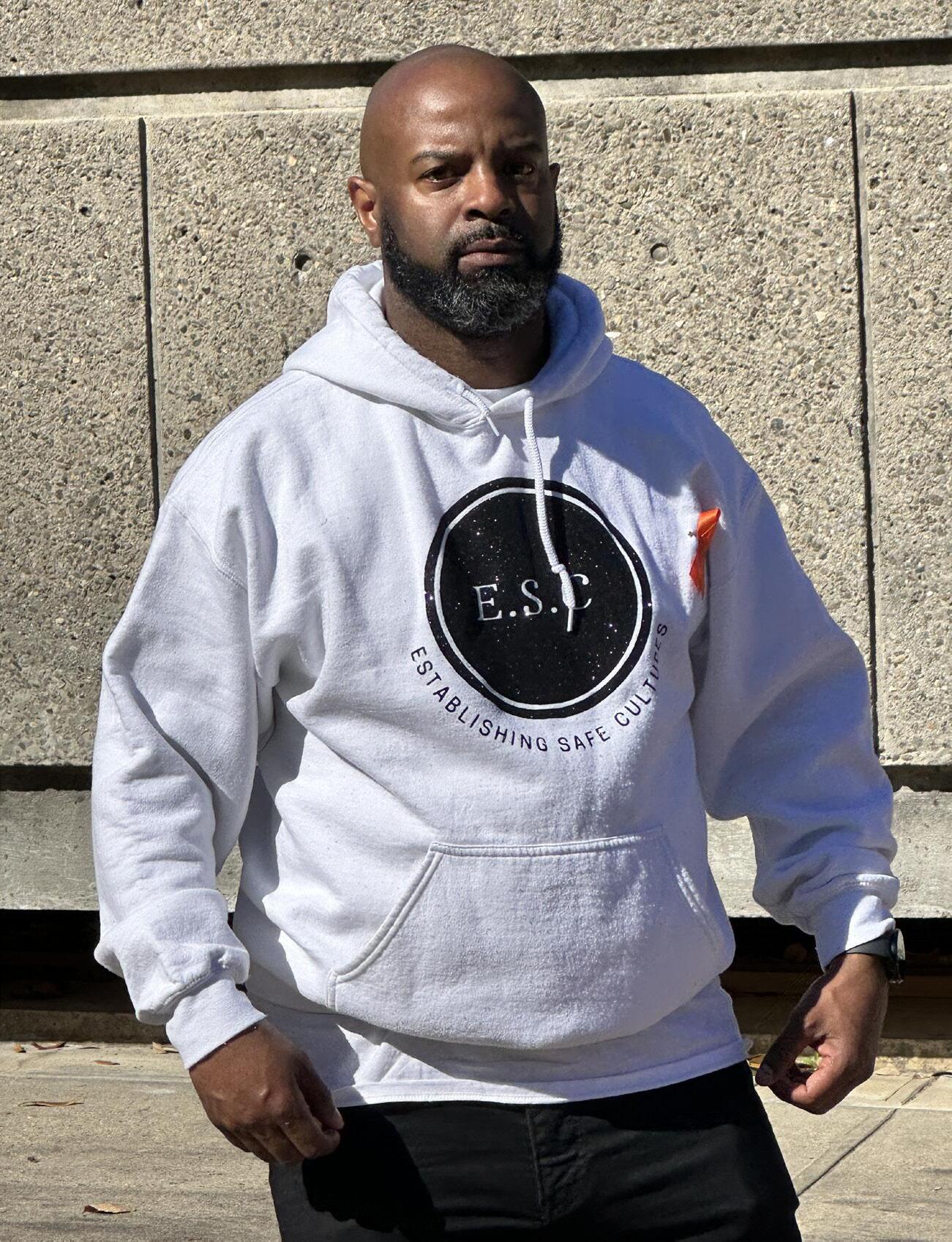
As with most lower-income communities, there are little or no opportunities for advancement or mobility. Children from these areas are considered to be “at risk.” Being labeled “at risk” puts a target on the back of many young black males, and Blackmon was no different. When he was sixteen, he got into some trouble with the law. “I was charged for a crime I didn’t commit, but I was young and trusted my public defender. I pleaded guilty, which gave me a reduced sentence but left me with a permanent record,” Blackmon explained.
After the smoke cleared, Blackmon was seventeen and needed to make a plan for the future. “I left high school because I felt like they weren’t teaching me things useful to me and my future. I got my GED and went straight to barber college.” Having a criminal record made life difficult for Blackmon at first, but he persevered, and now he owns his own barber college and works to help young people from his demographic avoid the pitfalls that tried to trap him. “I am a barber by trade, but my calling is to help elevate and educate the culture,” Blackmon shared.
CJ Brinson is also a native of Greensboro. Although his journey slightly differs from Blackmon’s, he also sees himself as being called to make a difference in the urban community. “I am a minister, a husband, and a father. My wife DraShonta, and I have three children and a fur-baby,” Brinson shares. “I wanted to become an R&B singer but was called into ministry and community activism.”
Brinson earned an undergraduate degree in political science, a minor in social justice from North Carolina A&T State University, and a master’s of divinity from Hood Theological Seminary. “Greensboro is a city rooted in social justice and community activism,” Brinson explains. “Many people don’t know this, but Greensboro has played a part in just about every move of social justice that has taken place in America. There’s the Revolutionary war, the Civil War, the A&T Four, who were instrumental in the desegregation of the Woolworth lunch counter, and the 1974 Greensboro Massacre, to name a few.”
Living around and being influenced by a rich history of social justice in the Greensboro community, Brinson felt it was a natural inevitability that he be part of the social justice movement of his generation. After receiving his undergraduate degree, Brinson earned his Master of Divinity. “It was while I was in seminary that my political thought met my religious thought, and that’s what inspired me to mobilize my community towards social justice,” Brinson explained. “After seminary, I returned to Greensboro and connected with an organization called Beloved Community Centers. It’s a faith-based group that trains community leaders. I’ve been moving forward ever since.”
As activists individually, Blackmon and Brinson worked to effect change in their community. However, they realized they could become more significant if they joined their voices with others ready to address the major issues facing today’s culture. The primary issue the duo is targeting is the rise in violent crimes in their community.
“Today’s culture has been conditioned to see violence as the answer to every situation. They are being inundated with this way of thinking from every outlet. They have constant exposure through music, movies, social media, video games, and their homes. We want to change the culture by reconditioning people, specifically young people, to see that violence isn’t the answer. Especially when we are attaching each other,” Blackmon explained.
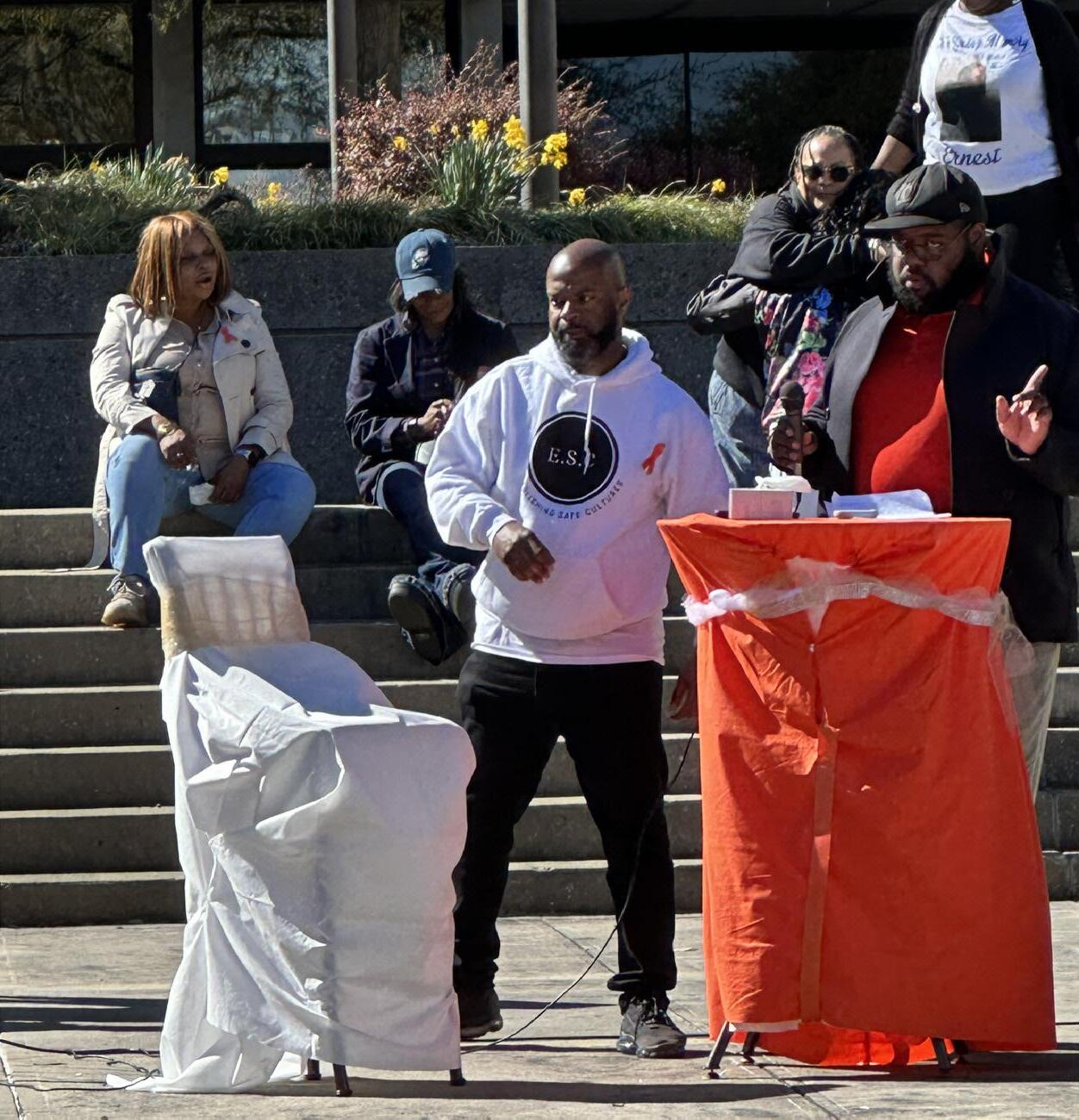
The violence Blackmon and Brinson are discussing results from years of systemic racism, disenfranchisement, and a social media campaign to push the idea that to be seen as powerful or in control; you have to be willing to fight for it physically. And the one who can be the most ruthlessly violent will survive. Thankfully Blackmon and Brinson have a plan to turn the tide of inter-communal violence in their community.
“Establishing Safe Cultures Coalition was born out of a deep desire to resolve intercommunal violence here in Greensboro,” Brinson explains. “Homicides were increasing here in Greensboro, and I knew something needed to be done. So I called a community meeting at my barber school,” Blackmon explained. “We had a major turnout, but we didn’t have a solid resolution to our problem. CJ Brinson was in attendance and started researching national programs that addressed our community’s problems. These programs would help minimize violence from a communal perspective that didn’t involve overpolicing. From that point on, we were on a joint mission to shift the culture of our community away from the rising violent crimes.”
“We call it intercommunal crime instead of “black on black” crime because this kind of violence isn’t just happening in black neighborhoods. It’s happening in communities around the country,” Blackmon points out. “We want to get away from the idea that poor black communities are the only ones dealing with this issue.”
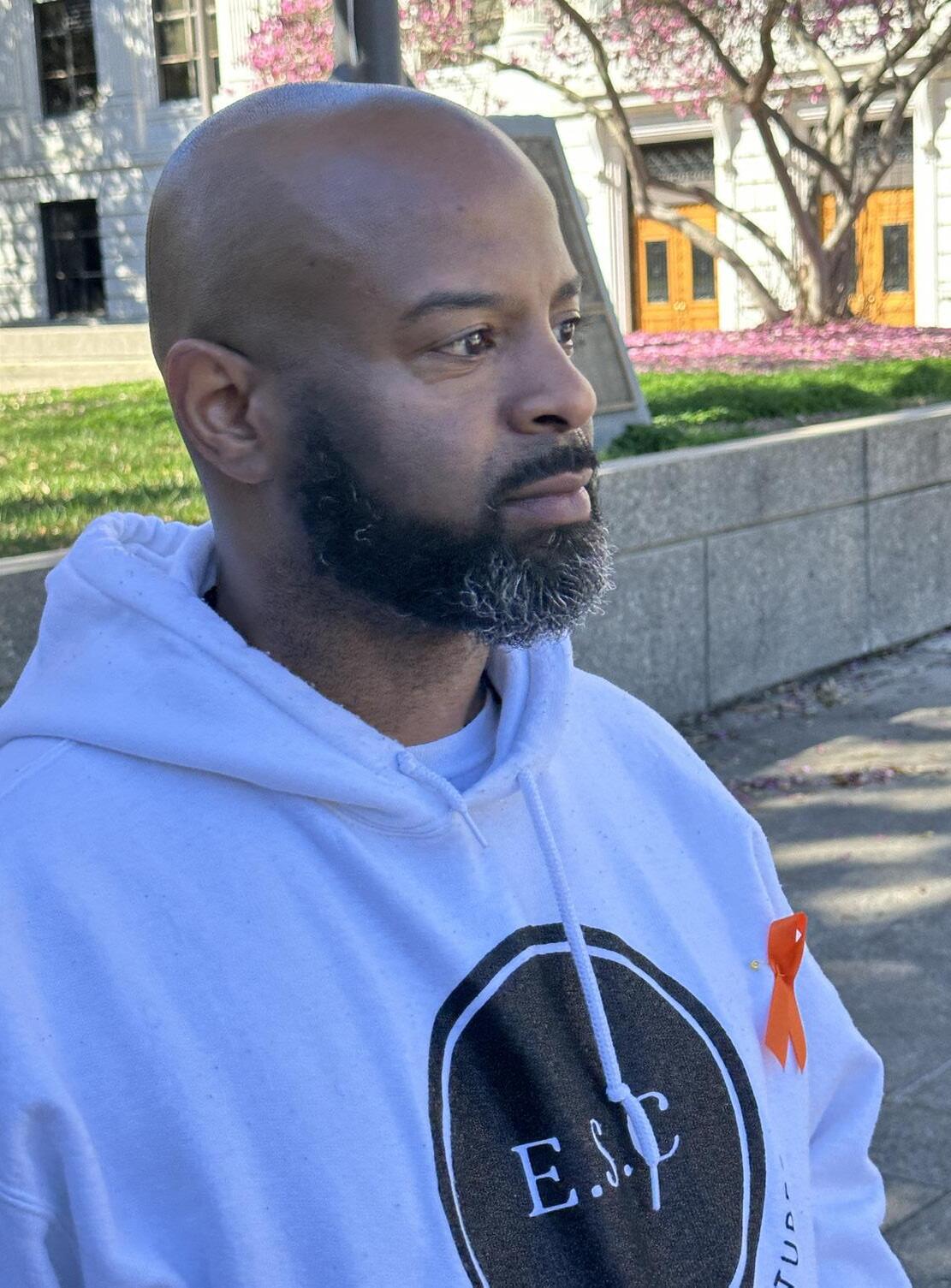
Blackmon clarifies that the Coalition is not activism but the community coming together to work toward a common goal. “Activism and Establishing Safe Cultures are two different things,” he explains. “Establishing Safe Cultures is the community coming together to shift the culture from one plagued with violence to a peaceful one that opens the door for more opportunities.”
The Coalition plans to shift the culture through education, mentorship, social and emotional development, and career readiness. “These workshops are designed to arm the community’s youth differently,” Blackmon shares. “We will show them and teach them that there is a better way to handle conflict. They need to know that everything doesn’t have to escalate to violence, especially when the escalation stems from something deeper.”
On February 26th, 2023, Establishing Safe Cultures Coalition held its first set of Culture Shift Workshops. One hundred girls and boys ages seven to twelve were invited to participate in this monumental experience. “The kids are going to have instruction and mentorship in personal development, financial literacy, and conflict resolution,” Blackmon explained. “There will also be group exercises for the body, mind, and spirit.”
The Coalition has been working on getting state funding to make the program sustainable. The desire is to have students meet twice weekly for instruction, training, and social-emotional development. But until that happens, the Culture Shift Workshops will be held quarterly. “Ideally, we want to have regular contact and training for the students, but without funding, that’s not possible. But we had to do something. We couldn’t allow things to remain as they are.”
Because of the efforts of Gene Blackmon, CJ Brinson, and the other members of the Establishing Safe Culture Coalition, the community of Greensboro doesn’t just have a plan of action; they have action. Working to combat years of cultural violence and disconnect won’t be easy. Still, Blackmon and Brinson exude a contagious confidence that will propel this culture shift well into a restored and unified community.
“We call it intercommunal crime instead of -black on black crime -because this kind of violence isn’t just happening in black neighborhoods. It’s happening in communities around the country.”
MAGAZINE Zoelle Alaiya Scott
To submit photographs to be placed in the Huami Magazine Cutest Baby feature, please send a detailed email to huami.cutestbaby@gmail.com
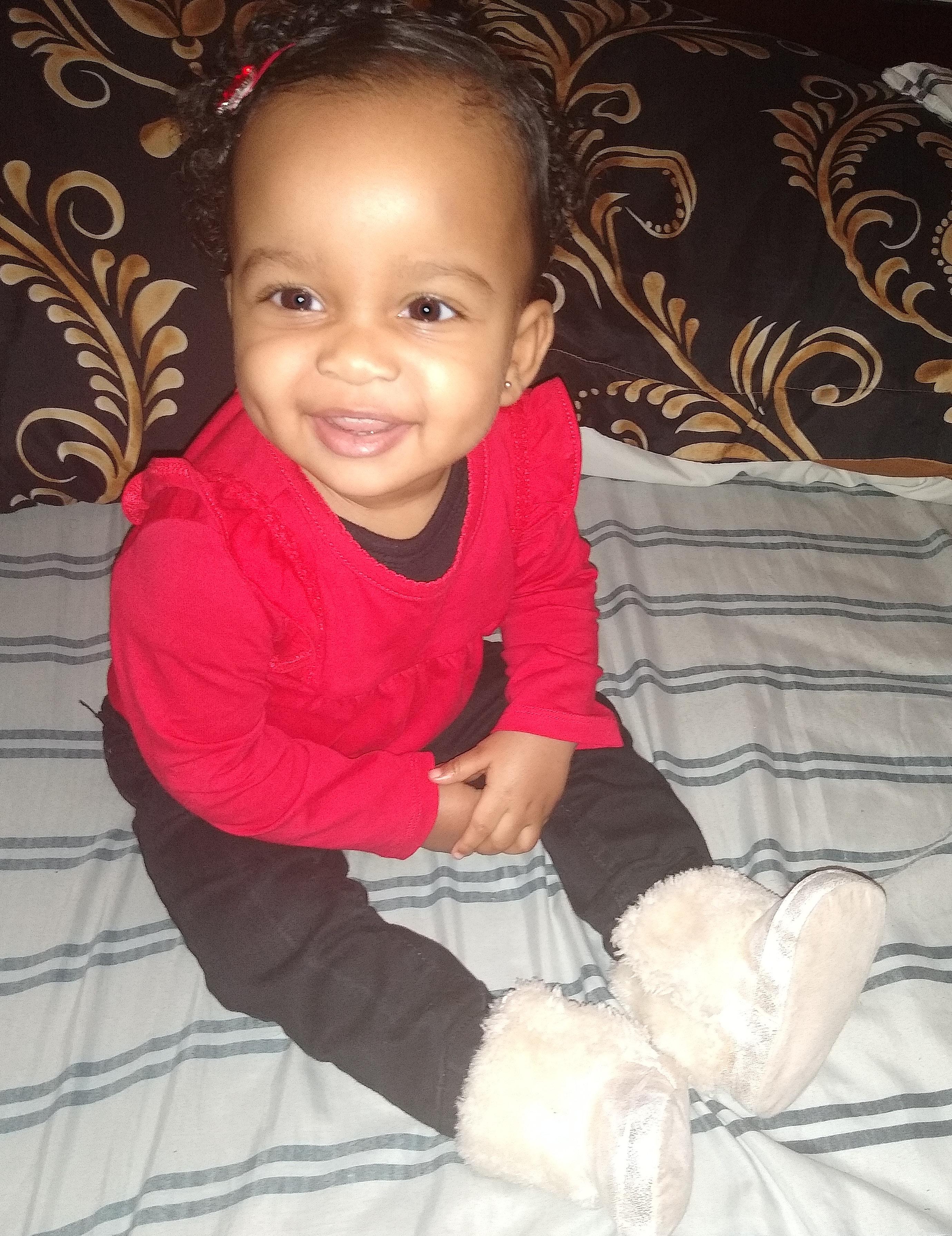 The daughter of Charita Jackson
The daughter of Charita Jackson
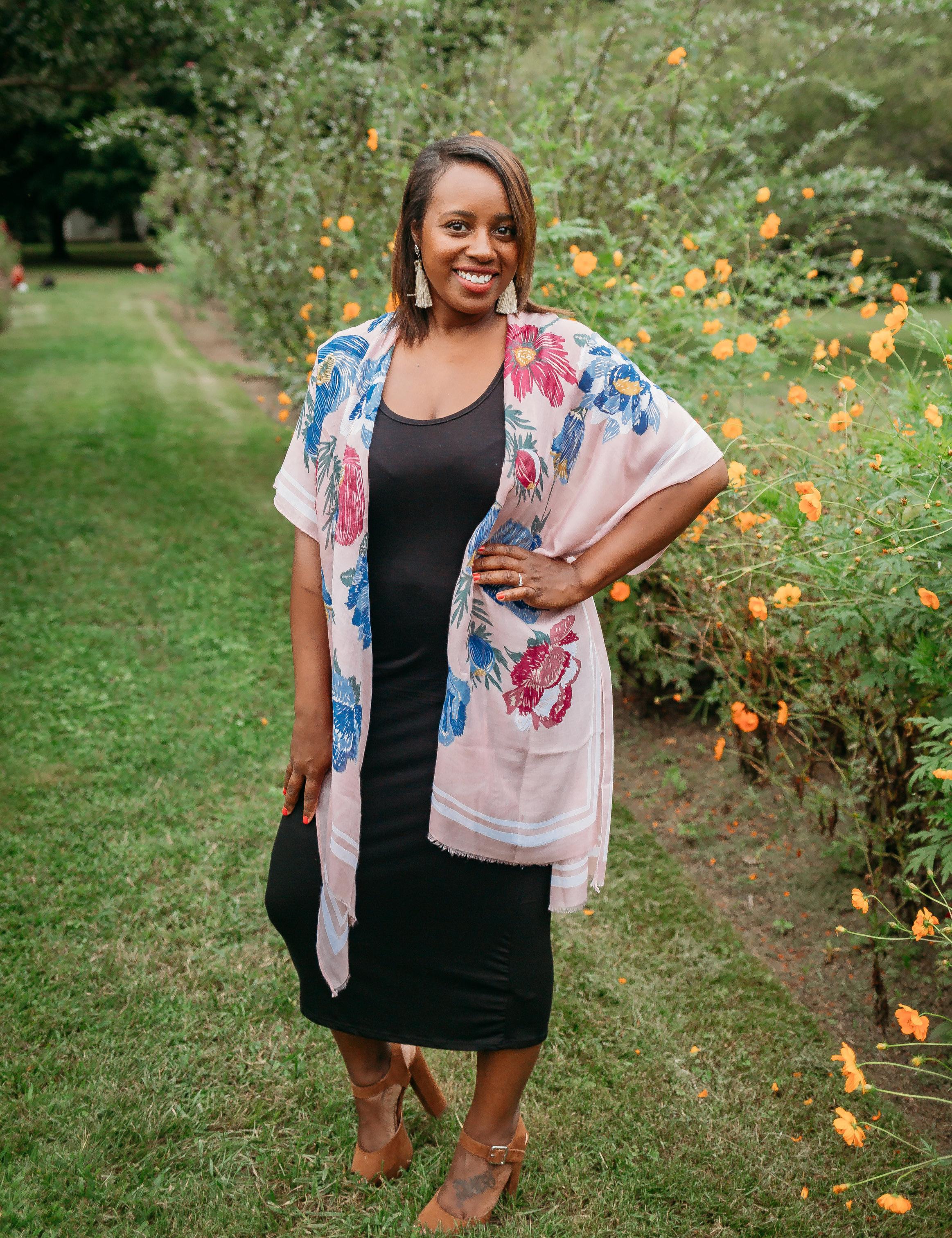
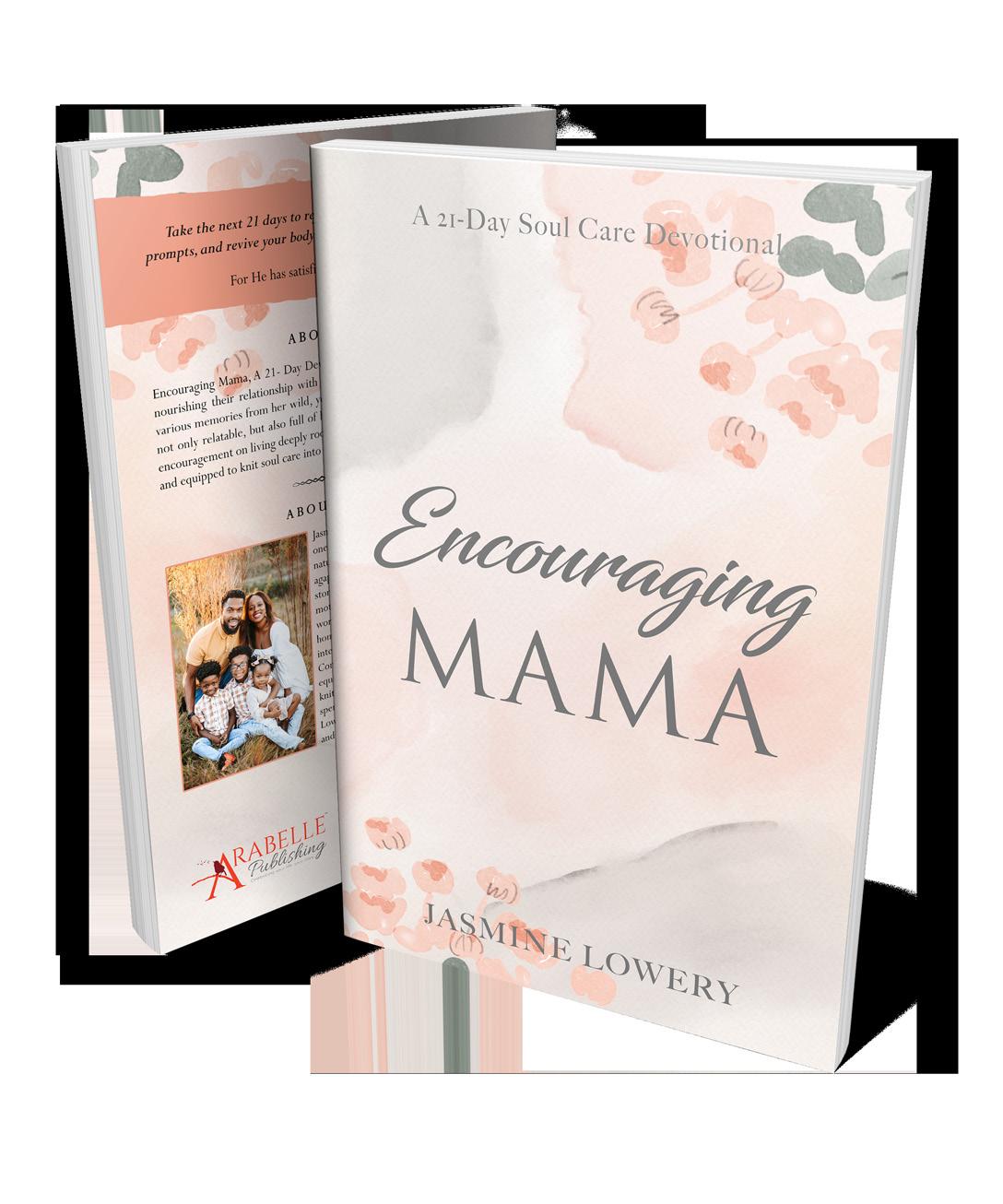 By Terry L. Watson
By Terry L. Watson
Jasmine Lowery is a believer, wife, mommy, entrepreneur, author, speaker, and content creator who is passionate about encouraging women to unapologetically follow their God-given dreams and knitting their faith into all areas of their lives. She is a natural storyteller who uses lessons from her life to help women find hope amid insurmountable situations. Her love for ministering to women led her to launch an international women’s ministry called Encouraging Her Community, LLC.
Jasmine, who resides in Richmond, VA, is also the proud owner of Agape Love Events, LLC, a wedding and floral design company she built from the ground up in 2015. She often shares that she is a proud “mamapreneur” who had to quickly learn how to knit her babies into her business plan. Her work has been featured in Essence Magazine, Martha Stewart Weddings, Black BRIDE, and more.
Jasmine also has a huge heart for education. She graduated from Virginia Commonwealth University with a degree in Early Childhood and Elementary Education and taught in the public school system for over seven years. Despite all of the hats that Jasmine wears, she acknowledges her first ministry is within her home. She is very family oriented and admits she wouldn’t be the woman she is today if it weren’t for the words of wisdom, prayers, and encouragement from her mother, grandmothers, and mother-in-law. She finds joy in spending quality time with her loving husband, Rashad Lowery, and their three beautiful children, Rashad, Jr., Isaiah, and Joy Elle.
At the beginning of this year, Jasmine published her first book, Encouraging Mama: A 21 Day Soul Care Devotional. Her hope is that this would become a life-changing tool used by women all over the world. Some of the soul care tips include unplugging as a family, taking nature walks, and listening to The Bible App. She says, “ My hope is that mommies all around the world will be inspired to knit soul care into their motherhood journey”
Jasmime says, “I often refer to my motherhood journey as wild, yet wonderful. From tackling mountains of laundry to cheering on my sons at their basketball games or painting my daughter’s nails, I know it takes a lot to pour into my children on a daily basis. There have been seasons when I didn’t understand the power of intentionally caring for my mind, body, and soul. These were the seasons when I struggled to enjoy my motherhood journey fully. Running on fumes didn’t only hurt me but also hurt my family. The more I prioritized focusing on nourishing my relationship with The Lord and caring for my mental and physical health, the more I showed up as the best version of myself for my family. Even on the tough days, I learned that making sure I carved out time for soul care helped get me through the really tough mothering moments.”
In March 2020, when COVID spread across the United States, Jasmine says she found herself at home with all three of her children (9 months old, one and five years old). She was forced to slow down and seek GOD on what it meant to be a fully present mama. The various tips that The Holy Spirit provided me would turn into the soul care tips I provide within her new book.
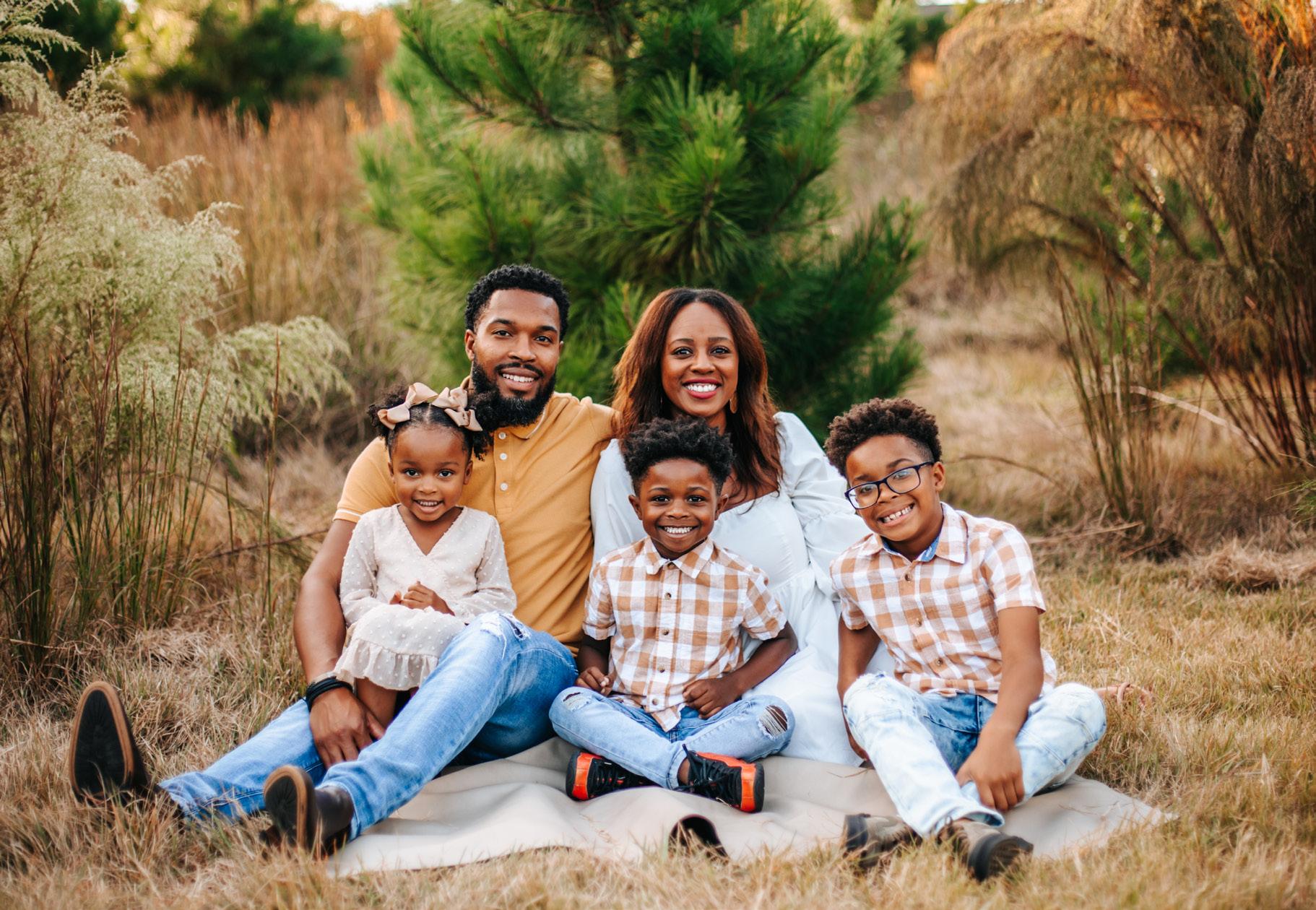
To learn more about Jasmine Lowery, please visit her website. Copies of her book are available at various outlets, including Amazon and Barnes and Noble.
www.encouragingherco.com
www.agapeloveevents.com
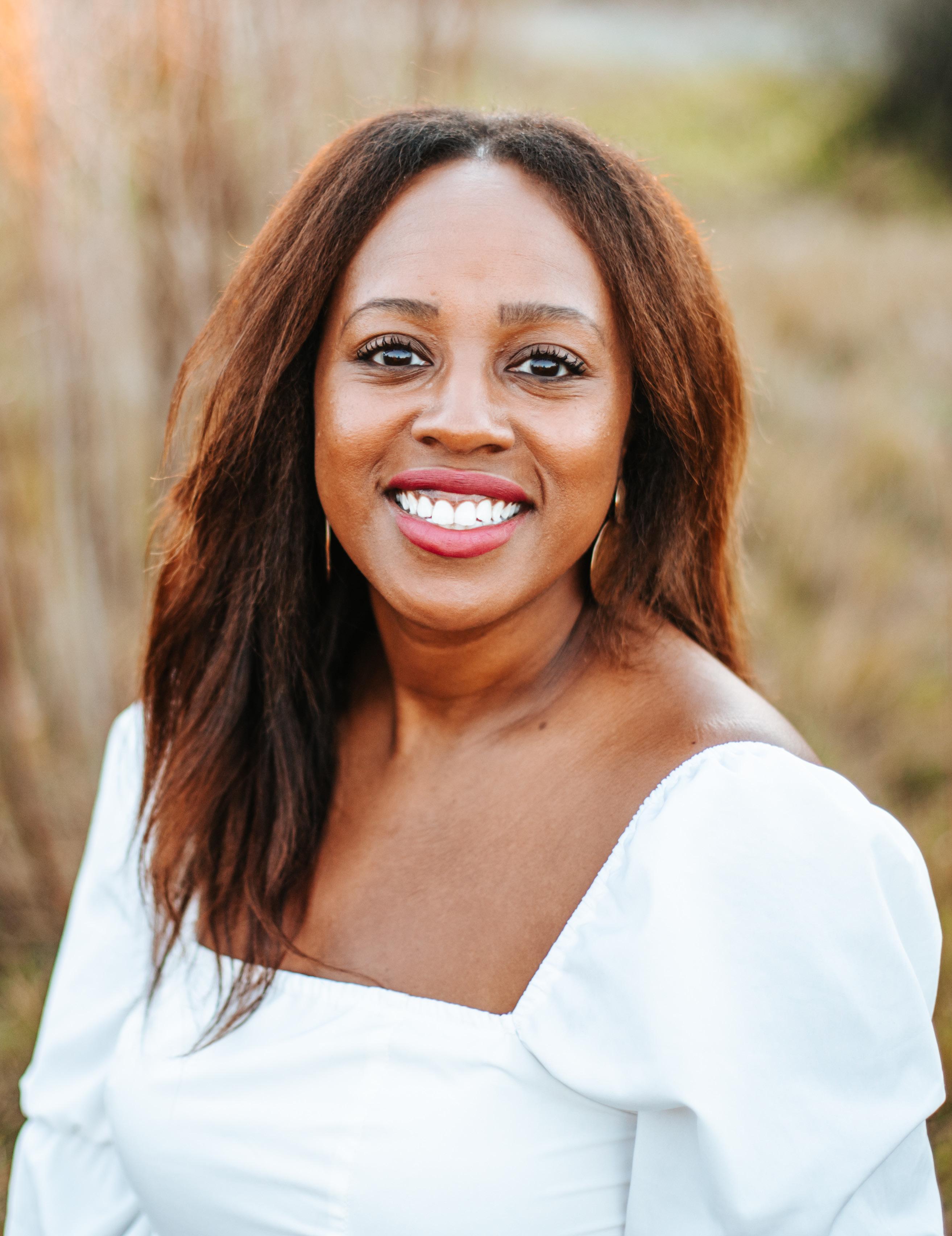

Great food always begins with great seasoning. Arizona resident, Karen HarrisBeauchamp, understands this concept and has devoted her professional career to mastering it. She is the owner of Nana K’s All Purpose Seasoning. She says, “Oftentimes healthy eating is associated with almost zero flavor. We want a healthy but also a palate pleasing taste. This is what prompted me to launch my company. Our seasoning is highly concentrated and subtle, yet it brings the best flavors forward. You won’t need another spice once you try ours. If you are looking for the taste of mom’s home cooking, then NANA K’s is what you need.”
Karen is originally from Milwaukee, WI. She honed her skills as an entrepreneur and culinary artist from the time of her youth. As a teenager, she worked for a catering business owned by Bob Thomas, the owner of a local newspaper. That exposure to business intrigued her, and soon Karen would find herself running a business of her own.
Karen and her aunt opened and managed a successful restaurant and catering business. The name of their company was Mardi Gras Catering, and they had clients such as Miller Brewing Company and Summer Fest Vendors in Milwaukee. They also served the Children’s Hospital, the Milwaukee Bucks, the National Bar Association, the United Way, and Wyndham Hotels & Resorts.
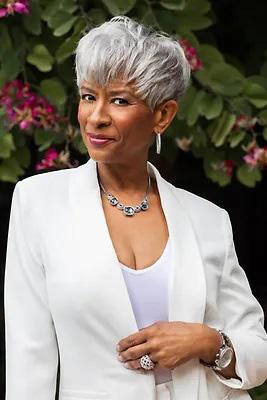
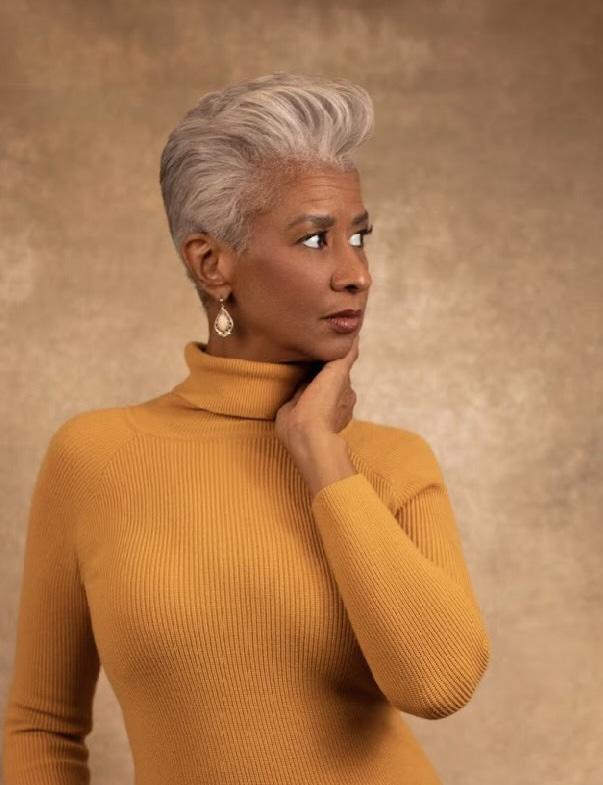
Her execution, leadership skills, and wealth of knowledge eventually enabled her to acquire full ownership of the company. Soon, she would lead the business to become the most successful catering and event planning business in the greater Milwaukee area. Their business would eventually enjoy success in Milwaukee for over 30 plus years.
Alongside her many entrepreneurial endeavors, Karen is also an actor on television shows, commercials and print advertising. Her credits include Facebook, Wingman, Consumer Cellular and several others. She is also a full-time lifestyle model.
Karen says she is a very passionate and family-oriented person. She married the late and former NFL player Joe Beauchamp, who played with the San Diego Chargers. Karen and Joe were married, and she says he has greatly impacted her life and career.
Karen now focuses her 40 years of restaurant, catering, and event planning experience on consulting small businesses with particular emphasis on social entrepreneurship. With Nana K’s All Purpose Seasonings, Karen focuses on creating products for cooks and chefs who love the robust flavor in their dishes.
Karen says what she loves most about what she does is giving her clients an opportunity to enjoy good food. “Good food brings a lot to so many things. It brings comfort to your home, it encourages fellowship, and it creates opportunities for people to connect,” she says.
She credits her grandmother, Mildred Lee Harris for inspiring her the most. She also credits her Aunt Charlene for working with her and pushing her to start a business.
“Good food brings a lot to so many things. It brings comfort to your home, it encourages fellowship, and it creates opportunities for people to connect.”

Like most business owners, many walls have presented themselves to Karen along her journey. “Starting out as a young entrepreneurial female was challenging for me. Caucasian males dominated our market at that time. One thing that changed the game for me was being a preferred vendor for Miller Brewing Company. Doors opened for me after that connection was made, and I in turn, I was able to employ others and introduce them to the craft and art of culinary,” she says. “Quality has been my mantra and remains my mantra. I instilled in my team members that we only have one time to make a first impression.”
Karen’s advice to others who may be interested in jumping into the world of entrepreneurship is to stay true to yourself and stay true to your brand. “You must do the necessary work and reach for the low-hanging fruit first. Stay transparent and equitable and ask for help if you don’t know the answers,” she says.
As she moves forward with her brand, Karen says her goal is to change the game. In addition to collaborating with other businesses, she plans to participate in national food shows. Nana K’s All Purpose Seasonings is working with various platforms to get their products on more shelves and in more places, including Amazon. They are also expanding their retail and wholesale presence.
Be on the lookout for Nana K’s All Purpose Seasoning. To learn more, please visit their website.

h
www.nanakseasoning.com
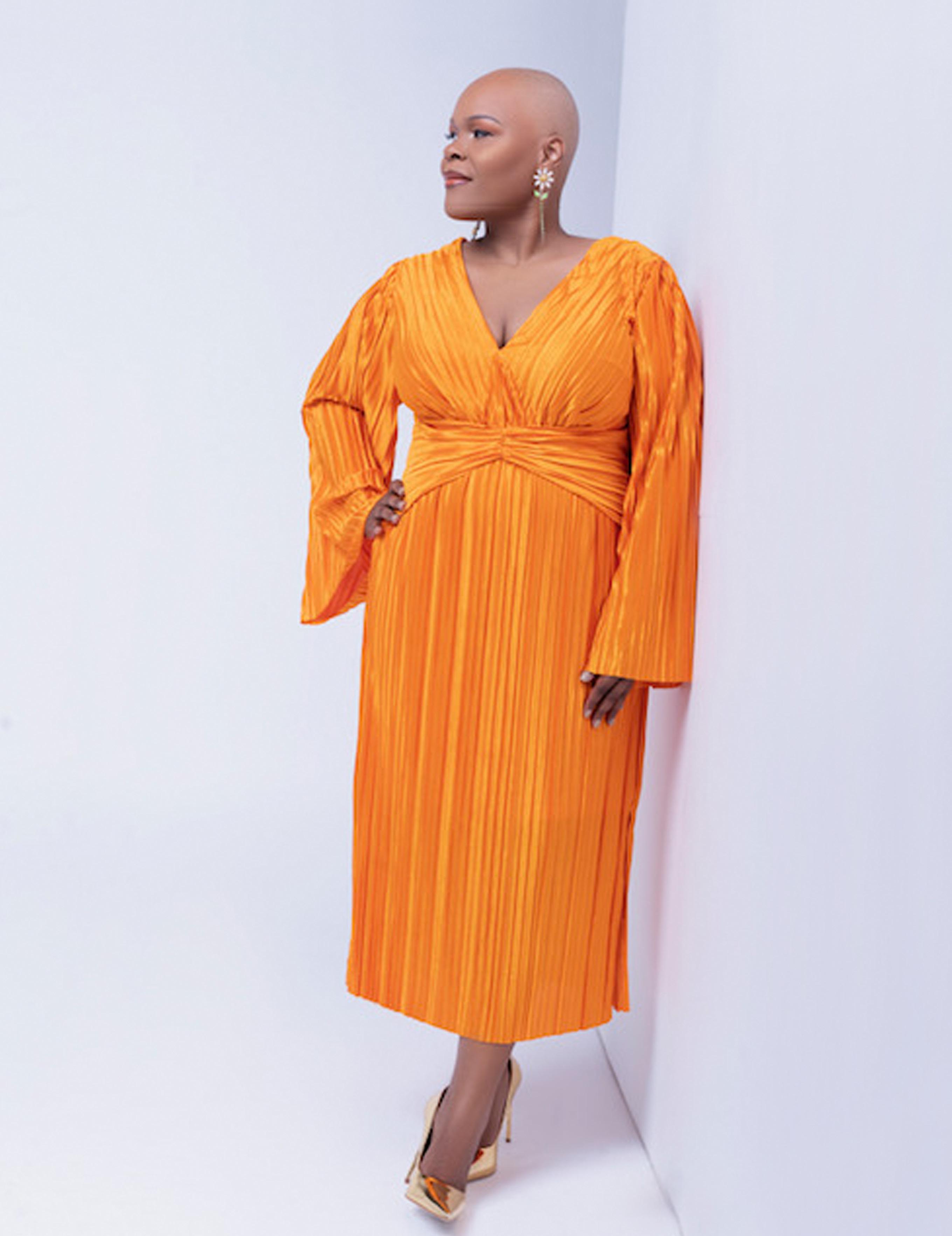

To truly connect with your inner core, it requires you to be willing to be open with yourself. This means removing every layer and misconception and revealing some things you may have never thought about doing. This is a true example of self-truth. Minister Shuntina Manuel has done just that and allowed her life to serve as an example of God’s unwavering love for us all.
Shuntina is the founder of EMPOWER, formally known as Woman Be Transformed. Shuntina is a worshipper and firm believer in the word and power of God. As a pastor and mentor, she is committed to a lifestyle of service that promotes permanent change and enhanced authenticity. “My ministry did not begin with me saying I wanted to start a ministry. It began with God putting the vision in my heart. That vision was a women’s ministry that affirms all women. My passion will always be to utilize my experiences, insight, and influence to help others evolve into the best version of themselves,” she says. Her ministry is built on a foundation of empowerment, transcending gender, ethnicities, and generations; her only target is to redeem the lost through the demonstrated power of God’s love and restoration.
Shuntina is a native of Greensboro, NC. She is a women’s advocate and female minister who believes in educating, empowering, and equipping all women. Furthermore, Shuntina has been gifted by the grace of God to impact women from various walks of life.
It was in 2018 when Women Be Transformed came to fruition. The first event was held at the Spartanburg Marriott in Spartanburg, SC. Since evolving to EMPOWER, it has successfully reached and guided women to awaken healing, wholeness, and love for themselves and others. EMPOWER assists women in various transitions in their personal life; spiritually, socially and relationally.
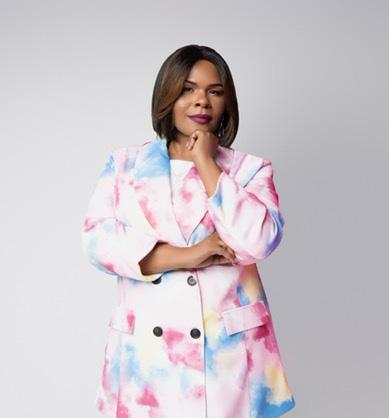



Shuntina shares how she finds life in women who can be truthful with themselves. “I am most inspired by truth. I am inspired by strong women who are unafraid to speak the truth in love. This is not bitter, caustic, cutting, or polluted with sarcasm. It’s not judgmental arrogance, either. It’s a love encounter with other women who are focused on clearing the path for the next generation. It’s women who are not embarrassed or too proud, or afraid to share their stories. Women who invest their lives in others because they understand it’s not all about them,” she says.

What Shuntina loves most about EMPOWER is the ability of her ministry to serve as a safe place where women can support each other. The area of support that EMPOWER focuses on is developing an authentic relationship with Christ and one another through prayerful and intentionally planned events, including fellowship. She also shares that she finds inspiration in those who have shown unconditional love to her. These same individuals have significantly impacted her life and helped her become the woman she is today. These individuals include her mom, her dad, grandparents, aunts and uncles, and various family members and friends. She also acknowledges several mentors for pouring into her life and ministry. “A common denominator is that they have all loved me unconditionally and each reflects God’s Love for me,” she says.
Shuntina is hosting the Safe Room Experience at the Spartanburg Marriott in Spartanburg, SC in March. The event is FREE to attend and will include special guests Prophetess Kristy Lyles and Dr. Elisa Lashell Harney. Moving forward, Shuntina will continue to EMPOWER women to be the best version of themselves by providing a safe place for them to come and be free.
To learn more about The Safe Room Experience and other events Pastor Shuntina Manuel hosts, please contact her directly.
“It’s a love encounter with other women who are focused on clearing the path for the next generation. It’s women who are not embarrassed or too proud, or afraid to share their stories.
Women who invest their lives in others because they understand it’s not all about them.”

















